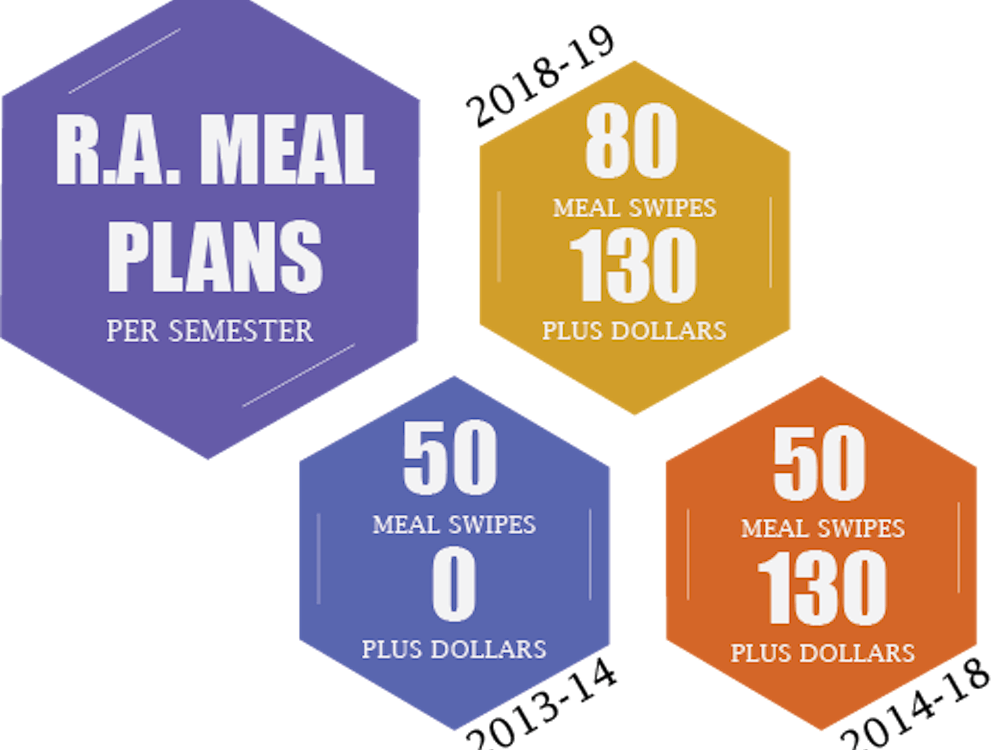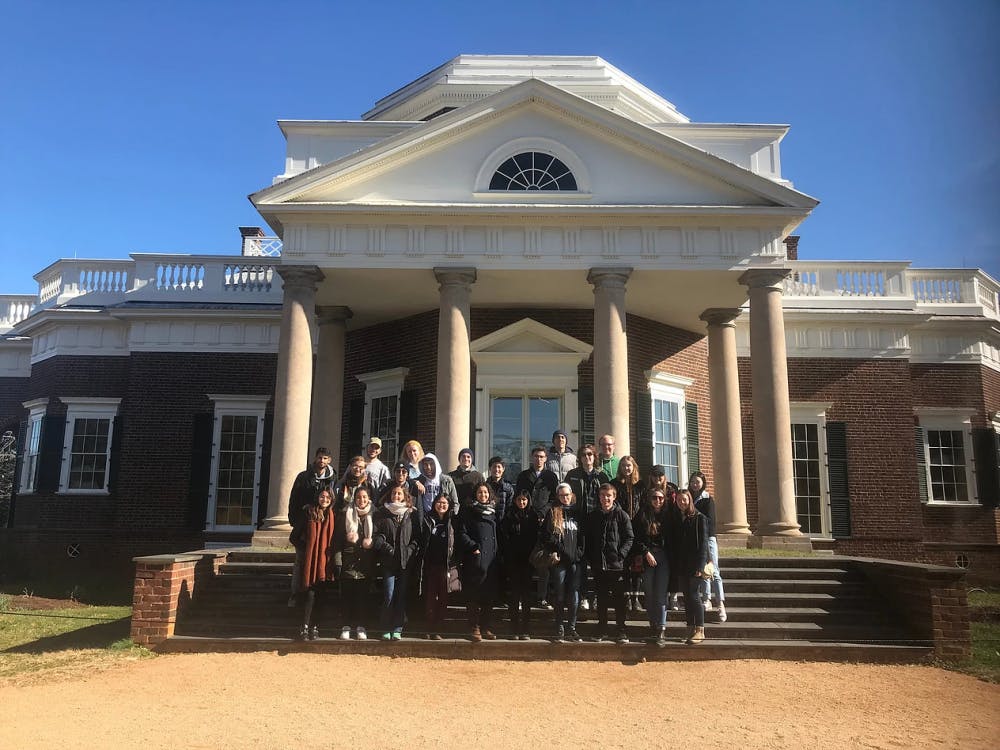Following the examples of Harvard University, the Massachusetts Institute of Technology and Stanford University, the University Faculty Senate is considering a resolution that would require all faculty members to retain the rights to enter their academic articles into a publicly accessible University repository. The proposed policy - which will be voted on at the Senate's Nov. 20 meeting - brings with it larger debates and concerns about open access and preservation issues.
The Resolution
Education School Prof. Brian Pusser, the chair of the Senate Task Force on Scholarly Publication and Authors' Rights, explained that the resolution requires faculty to submit an addendum while negotiating the publication of a scholarly article.
By not giving the publisher exclusive rights to the article, the faculty author's article would be placed into a University repository after one year, he said, "so that members of the University community and members of the broader public can access that work for non-commercial purposes one year after the publication."
The repository would be jointly administered by the Office of the Provost and the University Library, he added.
The version of the article placed in the repository would be different from the one published in the scholarly journal, as it would not have the same formatting and other elements used in the journal. Nevertheless, "in terms of content and so forth, it would be the same," Pusser said. The resolution applies only to scholarly articles and does not extend to books or works of art, he said.
If the policy does go into effect, the Faculty Senate will form a group to work with the Library system and the Provost's Office, which will actually implement it, Faculty Senate Chair Ann Hamric said. Milton Adams, University vice provost for academic programs, said the Office of the Provost does not have a position on the issue but he thinks it is the office's job to support the Faculty Senate.
The proposed policy also includes a waiver process, which allows faculty to opt out if they cannot complete an addendum with the publisher, Pusser said. "The policy covers all faculty and their scholarly publications," he said, "but we've purposely built in the opt-out mechanism to protect faculty in those instances where it would be better for all concerned to go ahead and publish without the addendum."
Pusser explained that the policy is intended to "really [increase] our ability to teach and conduct scholarship more effectively once we have our work in the repository."
Members of the task force are currently gathering information from faculty about the resolution, conducting dialogues with faculty and making presentations to various departments and schools around Grounds, Pusser said.
"The response so far has been quite thoughtful and quite helpful in developing the resolution," he said. "There's a range of responses and perspectives depending on whether a faculty member has experience with something like PubMed center and depending also on the department and discipline and the types of journals that the faculty work with."
Hamric said faculty members also may find out about the policy through the Faculty Senate Web site, which has posts of the resolution, a section of frequently asked questions and a letter from Madelyn Wessel, University associate general counsel and Senate Task Force member. "We are trying to do a very big information campaign here, and it's going well," Hamric said, "but the results are yet to be determined."
Open Access and Preservation
The proposed resolution is tied to larger issues concerning open access and preservation.
"There is a larger open access movement," said Law Prof. Edward Kitch, who is a member of the Task Force. "This [resolution] is just one little baby step in relation to one very small corner of the issues."
Adams added that the issues at stake go beyond the scope of the University community.
"This is a bigger question than just U.Va, since Harvard, MIT and Stanford all have similar resolutions and in general [the issue of] how digital materials are going to be archived is an extant question in the library world," he said.
Meanwhile, recent changes in technology have given these considerations an increased urgency, Pusser said, as they "have changed the ways in which we can teach and the ways in which we can use copyrighted materials."
Before these technological changes, libraries had to buy books to preserve and allow access to them, said James Hilton, University vice president and chief information officer. "Libraries provided access to books, bought them, rented them out and kept them preserved," Hilton said. "Libraries are the only institute charged with preserving [this knowledge] for the ages."
In other words, libraries preserve that knowledge beyond the point when publishers stop keeping copies of out-of-print books. Complications have arisen, however, because of the different treatment of digital articles.
"In the digital world, you buy access to information; you buy access to an online journal - you don't actually own a physical copy of the journal, you rent access to it," Hilton said. "That whole model that worked in the analog world doesn't work in the digital world."
With the creation of a repository, the Faculty Senate is trying to provide a space that would give libraries archiving and access rights independent of these online journals. This could be more consistent with the principles of open access, where articles would be available to the public rather than being restricted to, for example, people who subscribe to a journal.
Copyright scholar and Media Studies Prof. Siva Vaidhyanathan is in favor of open access because faculty members control the copyright whenever they write scholarly article, but they never get paid for those articles if they have transferred that copyright to a publisher, he explained.
"Under the current system for academic journals, the University sometimes pays at least twice [than what it would otherwise pay] for its work," Vaidhyanathan said. "The University pays for our time to research and write the article and then the University pays to buy it back through the libraries."
He also said one of the goals of open access is to show that the University is able to offer "less than perfect access" to the faculty's scholarly work, referring to the unformatted and unindexed articles that would be available in the proposed repository.
Additionally, "open access allows for a couple of interesting phenomena to occur beyond the standard journal economy," Vaidhyanathan said. For example, "[it] can let academic ideas flow into the public more easily because the public will be able to search and read and link to the raw articles."
Open access can also allow for wider peer review, Vaidhyanathan said. In the case of journals that have gone out of business and no longer offer electronic access to articles, "open access is beneficial for the long term preservation of knowledge."
Vaidhyanathan said open access will not undermine the market for journals or take away from their cultural power.
"Getting cited is really the currency in our business," he said, "so nothing about having the University provide access to the raw unedited copy of our article undermines the market for the final product."
As a result, libraries will continue to subscribe to journals because the faculty will insist on it, he said, explaining that they need the edited final product to cite.
"The cultural power of leading journals will remain under open access," he added, "because they represent a community of experts who do the peer review and the editing and that's not going to change."
Faculty Response
Some faculty members, however, have raised questions about the Senate's copyright resolution because of the waiver process and whether the policy will create obstacles for faculty, Pusser said.\n"Discussion has suggested that there would be a degree of hassle," Kitch said. "People would have to take steps to retain the license and provide a copy for the server and that takes away from time to do other things."
Additionally, the University would have to set up a system to receive copies of the article and to have waivers for the policy available upon request, Kitch said. For him, he said, the benefits outweigh the costs.
English Prof. David Vander Meulen, editor of the Journal Studies in Bibliography, supports the resolution's aims of "[disseminating] scholarship more widely, and [giving] authors greater rights to their own writing," but he believes that "the current proposal ignores some key components in scholarly publishing," according to an e-mail.
The exorbitant subscription fees for scientific, medical and technological journals were an important impetus for the proposal, Vander Meulen said, but different circumstances apply to other disciplines.
"The U.Va proposal takes [science considerations] as the norm," he said, "and, like [the Student Information System], adopts a one-size-fits-all approach, including for journals in the humanities whose circumstances are utterly different."
Vaidhyanathan also pointed out the differences between the disciplines.
"Science journal publishers ... have been treating [researchers] badly for decades," he said. Humanities and social sciences journals, however, are generally published by their scholarly societies with the help of a college or university press.
"It's a much friendlier environment," Vaidhyanathan said. "Nonetheless, open access can only help make our scholarship more relevant and more publicly available."
Unlike Vaidhyanathan, who supports the resolution, Vander Meulen finds the universal approach of the Senate's resolution problematic. For instance, he stated, the one-year period after which articles may be placed in the repository "is based on the useful life of scientific journals rather than the much longer currency of those in the humanities."
Vander Meulen said he also is concerned with the compulsory nature of the program, which raises questions of academic freedom that materials related to the current resolution do not address. Moreover, he is concerned about the broad language of the resolution and his belief that "the Senate is being asked to vote on a policy in which details make all the difference," when accompanying documents to the resolution acknowledge that the details are not yet known.
There also are concerns about the cost of the program, which "no one seems to know," Vander Meulen said, and the impact of a global license being granted to the University.\nAdams addressed the overall issues of access and preservation in evaluating the resolution.
"What I believe is that we need to find a way to solve it, and this is an attempt to solve it," he said. "Directionally, [the resolution]'s terrific. I don't know what the downstream unintended consequences will be, but we know that the consequences of inaction right now are the loss of the scholarly record."
Vaidhyanathan agreed that taking action on these issues and specifically establishing a policy of open access is significant.
"If the University of Virginia fails to do this, it's going to be a huge embarrassment to our faculty," he said. "Faculties at every major research university in the country are considering this and almost all of them are going to pass it, and Harvard and MIT have led the way. We would be holding ourselves out as champions of the 18th century, if we hold back from this."
The Future of the Resolution
The Faculty Senate will determine at its Nov. 20 meeting whether the policy goes into effect. Hamric said she did not want to speak of the collective opinion of the Faculty Senate and was unwilling to speculate about the outcome of the vote, though she said she hopes the resolution passes.
"A number of our colleagues have given a great deal of time to understanding this issue," she said, "and those are the people that are the most convinced that we need to do this and I take that seriously."
Vaidhyanathan added that the resolution will also have an important general effect. "If nothing else," he said, "it's going to make faculty members more savvy about copyright and about their own role in the system"




